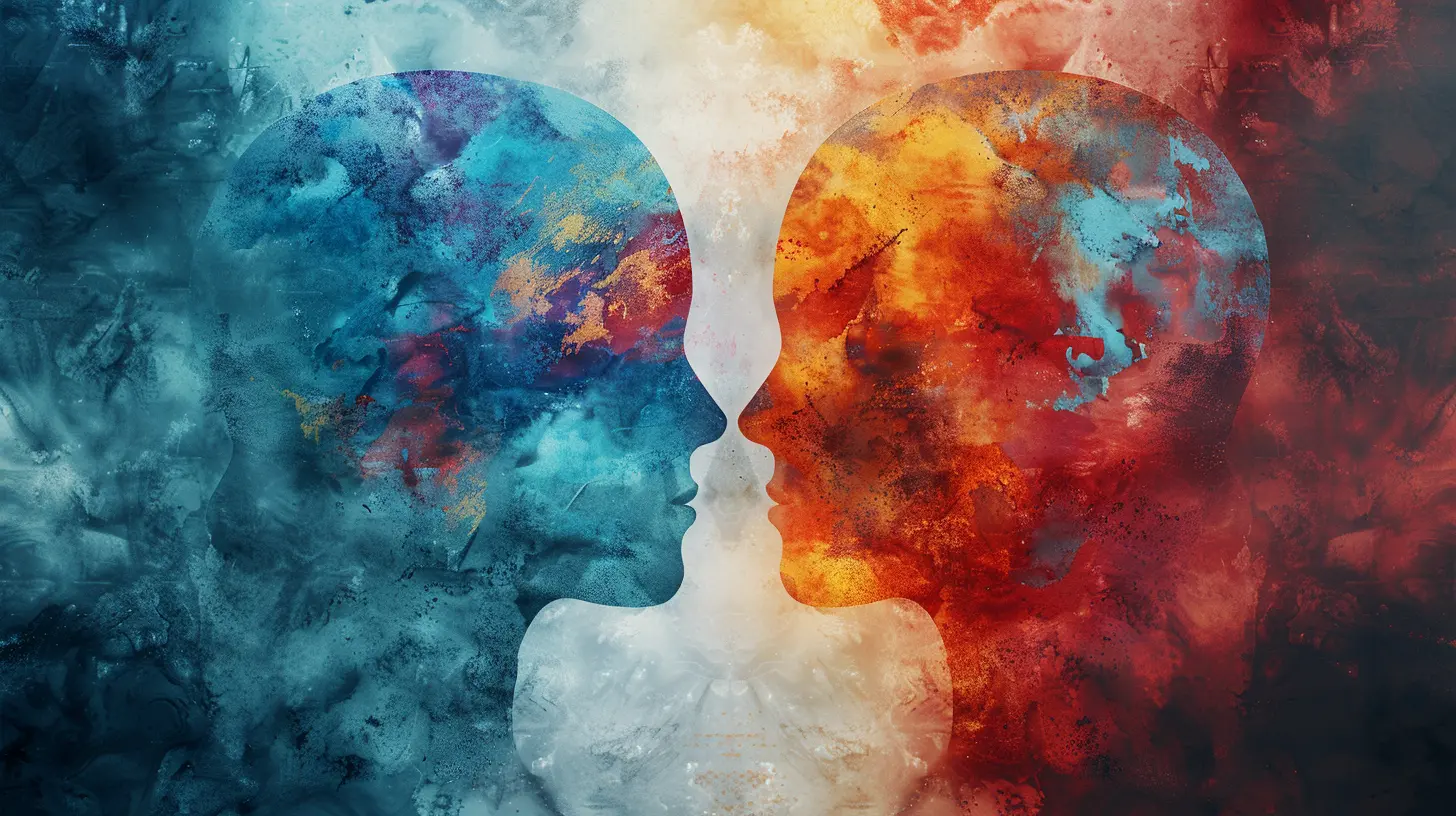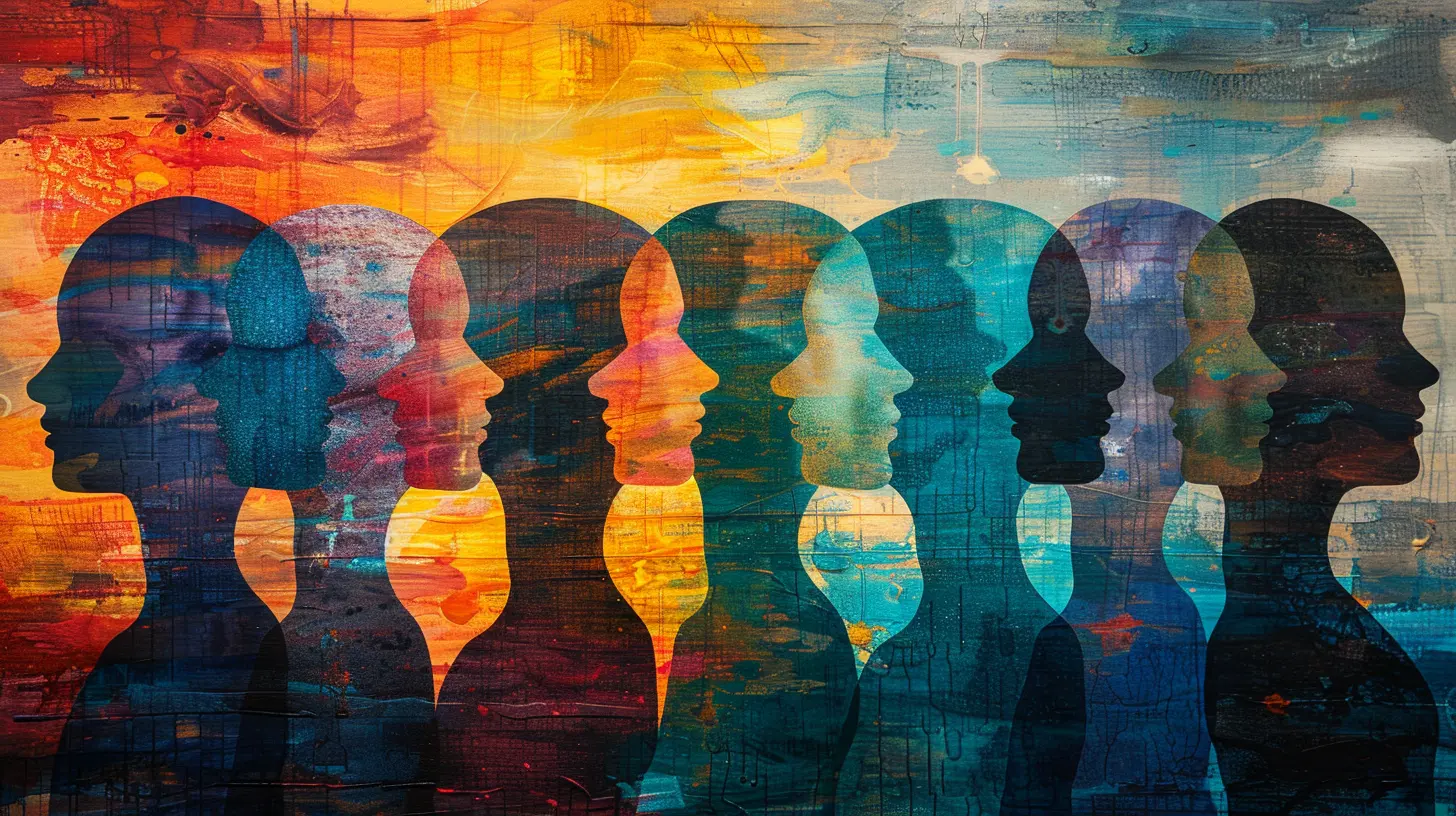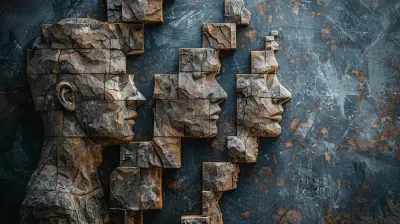How Cultural Norms Shape Our Perception of Mental Health
13 February 2025
Mental health is a topic that has been gaining more attention in recent years, but what’s interesting is how differently it’s viewed across the world. Ever thought about why some people in certain cultures are more open to discussing their mental health, while others shy away from the topic completely? Well, the answer lies in cultural norms—the invisible set of rules and traditions that shape how we think, feel, and behave.
In this article, we’ll take a deep dive into how cultural norms influence our perception of mental health. We’ll explore why mental health is treated differently in various societies, the stigma attached to mental illness, and the role of community and family. So, let’s get ready to unravel the fascinating intersection between culture and mental health!

The Role of Culture in Shaping Mental Health Perceptions
Culture is like the lens through which we view the world. It colors everything we do, from the way we eat to how we interact with others. So, it’s no surprise that culture also affects how we perceive mental health.In some cultures, mental health is an open topic, freely discussed in schools, workplaces, and homes. In others, it’s almost taboo, something people avoid talking about openly. These differing attitudes are largely shaped by deep-seated cultural beliefs.
Western vs. Eastern Perspectives on Mental Health
Take Western cultures, for example. In countries like the United States and the UK, mental health has become a priority in public health discussions. There’s a growing understanding that mental illness is just as important as physical illness. People are encouraged to seek therapy, talk openly about their struggles, and practice self-care. Famous personalities openly share their mental health journeys, which normalizes the conversation further.Now, contrast this with many Eastern cultures, where mental health can still be a sensitive topic. In places like Japan, China, or India, mental illness is often viewed through a more conservative lens. Many people fear the stigma associated with it, as it’s seen as a sign of weakness or failure. In these societies, there’s immense pressure to conform to societal expectations, which can make it harder for individuals to seek help.
But why is there such a stark difference? It mainly boils down to individualism vs. collectivism.
Individualism and Collectivism
In individualistic societies like the U.S., people are encouraged to be independent, prioritize personal achievements, and focus on self-improvement. Because of this, therapy and mental health care are seen as tools to help individuals overcome personal challenges. The emphasis is on personal healing, which aligns well with the general cultural narrative of self-reliance.On the flip side, collectivist cultures—such as those found in many Asian, African, and Latin American countries—place a higher value on family, community, and social harmony. In these cultures, mental health isn’t just a personal issue; it’s seen as something that could impact the entire family or community. This adds another layer of pressure. Admitting to having a mental illness could bring “dishonor” to the family, making it even more difficult to seek help.
The Invisibility of Mental Health in Some Cultures
Mental illness is often invisible. Unlike a broken leg or a physical ailment, you can’t always "see" when someone is struggling mentally. This invisibility can make it harder for communities that don’t prioritize open discussions about mental health to recognize and address these issues.In some cultures, mental health problems are dismissed as personal weaknesses or character flaws. In extreme cases, people suffering from conditions like depression or anxiety might be told to "snap out of it" or "pray harder." This lack of understanding only deepens the stigma.

Stigma and Mental Health
The stigma surrounding mental health is a universal issue, but its intensity and form can vary across cultures. In many societies, mental illness is still viewed as something shameful. This stigma can come from various sources—family, friends, or even institutions like schools or workplaces.The Fear of Judgment
In certain cultures, especially in more traditional or conservative societies, mental illness can be seen as a moral failing. The idea is that if you’re struggling mentally, it’s because you’ve done something wrong, either in this life or in a past one. This belief can be especially prevalent in religious communities.For example, in some parts of rural India, mental illness is often attributed to past karma or spiritual imbalance. Instead of seeking medical treatment, individuals might turn to religious healers, which can delay or prevent them from getting the professional help they need.
The Role of Family Honor
In collectivist cultures, the concept of "family honor" can be a significant barrier to seeking mental health care. The fear is that if one family member is diagnosed with a mental illness, it will reflect poorly on the entire family. This is particularly common in tight-knit communities, where reputation is everything.In these societies, mental illness may be kept hidden, with families going to great lengths to "cover up" the issue. The person suffering may be discouraged from seeking help, further exacerbating their condition.
Gender and Mental Health Stigma
It's also important to note that stigma can vary depending on gender. In many cultures, men are expected to be strong, stoic, and unemotional. This can make it much harder for men to seek help for mental health issues, as they may fear being perceived as weak or "unmanly." On the flip side, women might face their own set of challenges, especially in societies where they are expected to prioritize the needs of others before their own.
The Impact of Social Media on Cultural Norms and Mental Health
With the rise of social media, cultural norms surrounding mental health are quickly evolving. Platforms like Instagram, Twitter, and TikTok have given people a space to share their mental health journeys openly. This has led to a shift in how mental health is perceived, especially among younger generations.The Rise of Mental Health Advocates
Thanks to social media, many individuals have taken on the role of mental health advocates. They share their own experiences with anxiety, depression, PTSD, and other mental health conditions, encouraging others to do the same. These platforms have provided a space where people can feel less alone in their struggles, which is a big step toward destigmatization.In many ways, social media is challenging traditional cultural norms. Younger people, in particular, are pushing back against the older generation’s reluctance to talk about mental health. They are normalizing therapy, self-care, and open discussions about mental illness.
The Double-Edged Sword of Social Media
However, it’s not all sunshine and rainbows. While social media has helped destigmatize mental health, it’s also contributed to rising levels of anxiety and depression in some cases. The constant comparison to others, the pressure to curate a "perfect" life, and the endless stream of information can be overwhelming.In certain cultures, where success and achievement are highly valued, social media can exacerbate mental health struggles. The pressure to constantly perform, whether academically, professionally, or socially, can take a toll on an individual’s mental well-being.

How Can We Change the Narrative?
So, how do we move forward? How can we shift cultural norms to create a more open and supportive environment for mental health?Education is Key
One of the most effective ways to change cultural perceptions of mental health is through education. Schools, universities, and workplaces need to provide mental health resources and promote open discussions. The more people understand mental health, the less likely they are to stigmatize it.Mental Health in Public Policy
Governments also play a crucial role in shaping cultural norms. Public health campaigns, mental health initiatives, and legislation can all help shift the narrative. When mental health is prioritized at a national level, it sends a message that it is just as important as physical health.Encouraging Open Conversations
As a society, we need to encourage open conversations about mental health. This means not only talking about mental illness but also normalizing everyday mental health struggles. After all, everyone experiences stress, anxiety, and sadness at some point. By creating a culture of openness, we can make it easier for people to seek the help they need.Conclusion
Cultural norms play a significant role in shaping how we perceive mental health. From the stigma attached to mental illness to the role of family and community, our cultural background influences how we approach mental health issues. However, with the rise of social media, mental health awareness is growing, and younger generations are challenging traditional norms. By continuing to educate, advocate, and promote open conversations, we can work toward a future where mental health is prioritized and destigmatized across all cultures.all images in this post were generated using AI tools
Category:
Psychological ResearchAuthor:

Alexandra Butler
Discussion
rate this article
9 comments
Bellamy McGeehan
What a fantastic read! It's inspiring to see how cultural norms influence our understanding of mental health. Embracing diverse perspectives can really enhance empathy and support. Here’s to breaking barriers and fostering a more inclusive dialogue!
April 8, 2025 at 3:55 AM

Alexandra Butler
Thank you so much! I appreciate your insights and support for fostering inclusivity in mental health discussions.
Grant Bowman
What a fascinating exploration of cultural influences on mental health! 🌍💭 It's a reminder that we're all shaped by our backgrounds, yet there's so much room for growth and understanding. Embracing diverse perspectives can foster healing and compassion. Let's keep the conversation going—together, we can break down barriers!
March 1, 2025 at 3:40 PM

Alexandra Butler
Thank you for your insightful comment! I completely agree that embracing diverse perspectives is crucial for fostering understanding and compassion in mental health discussions. Let's continue this important conversation!
Zailyn Bellamy
Cultural norms intertwine with our understanding of mental health, molding perceptions that often stigmatize vulnerability. By critically examining these constructs, we can foster a more compassionate dialogue, encouraging acceptance and holistic healing across diverse communities.
February 27, 2025 at 4:09 AM

Alexandra Butler
Thank you for your insightful comment! I completely agree that critically examining cultural norms is essential for reducing stigma and promoting understanding in mental health.
Vanessa McCaffrey
This article insightfully explores how cultural norms significantly influence our understanding and perception of mental health.
February 23, 2025 at 5:11 PM

Alexandra Butler
Thank you for your thoughtful comment! I’m glad you found the article insightful in highlighting the impact of cultural norms on mental health perceptions.
Camden Franklin
Thank you for this insightful article! It’s fascinating how cultural norms influence our understanding and perception of mental health. Recognizing these differences can lead to more empathetic approaches in mental health care. I appreciate the emphasis on fostering dialogue around these crucial topics. Looking forward to more discussions!
February 23, 2025 at 3:38 AM

Alexandra Butler
Thank you for your thoughtful comment! I'm glad you found the article insightful and appreciate your commitment to fostering dialogue on this important topic. Looking forward to more discussions together!
Malia McClary
Break free from stigma—embrace diverse mental health perspectives!
February 21, 2025 at 5:47 PM

Alexandra Butler
Thank you for your comment! Embracing diverse perspectives is crucial for understanding mental health beyond cultural stigmas. Let's continue the conversation!
Preston Sweeney
Cultural norms? More like cultural blindfolds! Time to see mental health through a clearer lens!
February 19, 2025 at 5:19 PM

Alexandra Butler
Thank you for your insightful comment! It's essential to challenge cultural blindfolds and promote a clearer understanding of mental health.
Solstice Hurst
Cultural norms profoundly influence our understanding of mental health, shaping perceptions and attitudes. By embracing diverse perspectives, we can foster a more compassionate dialogue, empower individuals, and break down barriers. Together, let’s create a more inclusive environment for mental wellness!
February 19, 2025 at 5:59 AM

Alexandra Butler
Thank you for your insightful comment! Embracing diverse perspectives is essential for fostering compassion and inclusivity in mental health discussions. Together, we can make a significant impact.
Lorna Kelly
Understanding cultural norms is essential for fostering mental health awareness; they profoundly influence our perceptions and approaches to well-being.
February 14, 2025 at 5:39 AM

Alexandra Butler
Absolutely! Cultural norms play a crucial role in shaping our views on mental health, impacting both awareness and the effectiveness of support systems. Understanding these influences is key to promoting better mental health practices.
MORE POSTS

How Empathy Strengthens Romantic Connections

The Psychology of Groupthink and Collective Decision Making

Exploring the Power of Music for Emotional and Physical Well-Being

Psychoanalysis and Art: How Creativity Reflects the Unconscious

The Impact of Screen Time on Childhood Development

Myths and Misconceptions About Living with Schizophrenia

The Neuroscience Behind Empathy: Understanding the Brain's Compassion Circuit